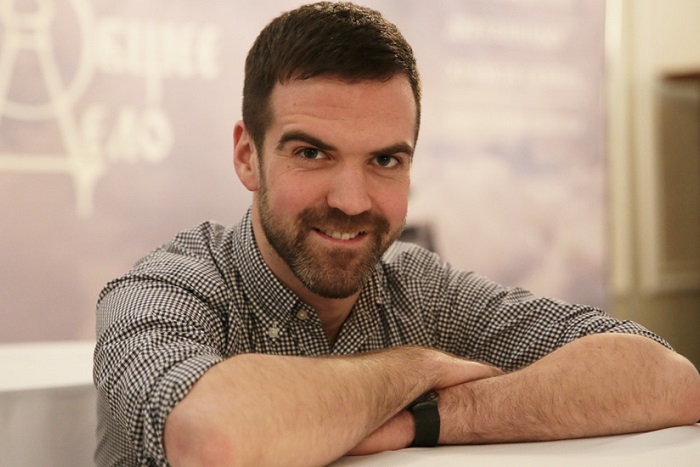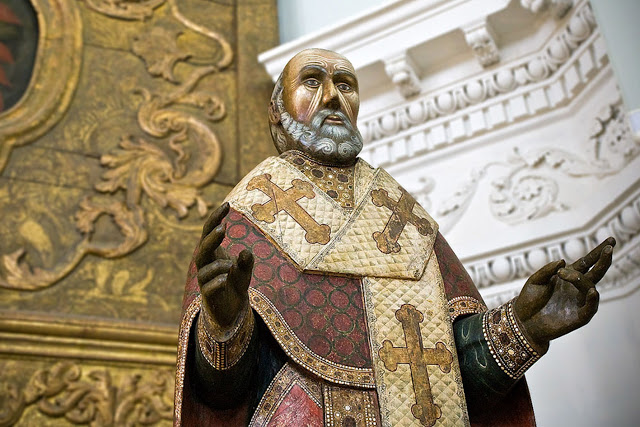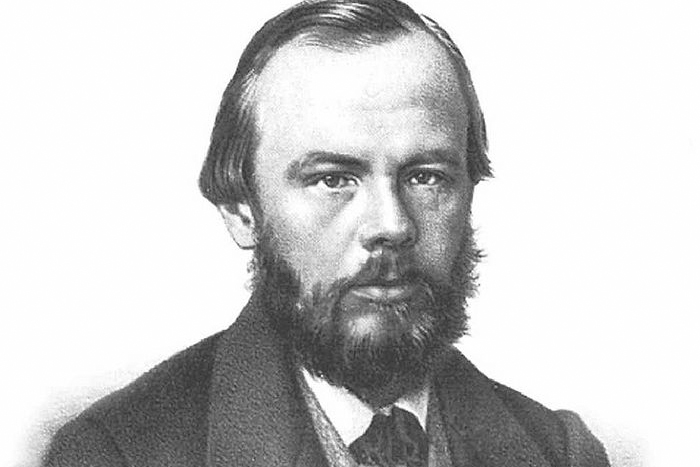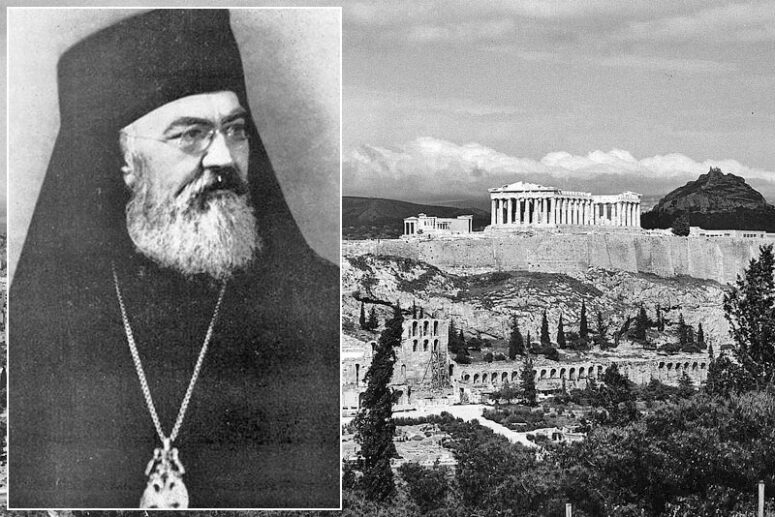
Choosing between good and evil is easy. Choosing between a greater evil and a lesser one is a more difficult task, especially if it is not immediately apparent which is which. Imagine being offered a high office at a time when your homeland has been conquered by the enemy, your people are suffering and dying under occupation, and your king is in exile. To accept this offer means cooperation with the enemy and jeopardising your reputation. However, it is also an opportunity to take on the burden of responsibility and try to save lives right here and now.
Archbishop Damaskinos (Papandreou) of Athens and All Greece was appointed in July 1941. His predecessor was ousted by the occupation authorities for his tough anti-fascist stance. What choice did the Archbishop make?
The Rope
The interrogation dragged on. The Germans were infuriated by this giant wearing a black cassock and answering all their questions either by silence or by phrases like: “I spoke with God, and my conscience told me what to do.”
When the Gestapo officer switched to shouting, the priest took out a piece of rope from his pocket. “If you want to hang me, here’s the rope!”
This topic arose more than once in the communication of the Archbishop with the Nazis. In 1943, he stood up against the planned genocide of the Athenian Jewish community and was threatened with a shooting. The Primate replied, “The Greek hierarchs are not shot. They are hanged. Please respect this tradition.”
The Archbishop continued to harshly denounce the invaders in his sermons. Once the head of the collaborationist government Georgios Tsolakoglou told him, “Be careful, or the Germans will shoot you.” Again, His Eminence Damaskinos said, “It is the military who are shot. The hierarchs are hanged, and I am ready for it.”
What Did the Archbishop Mean?
In 1821, when the Greeks rebelled against Ottoman slavery, the Ottoman Sultan hanged Patriarch Gregory V on the gates of the Patriarchate compound without trial or investigation. The brutal death of the Patriarch, commemorated by the Greek Church as an Ethnomartyr (martyr of the Nation), sanctified in the minds of the people their struggle against the invaders, renewing their strength.
More than a hundred years later, history seemed to be repeating itself. The new mortal enemy was confronted by a new spiritual leader of the nation, ready to give his life for his faith and his people at any moment.
Against the Flow
Dimitrios Papandreou was born on March 3, 1891 in the small village of Dorwitsa in Greece. After graduating from school, he entered a theological school in Athens. Dimitrios studied law at the university and received a degree. During World War I he served in the army, and then worked as secretary of the Athens Metropolitan Church. In 1917 he was ordained a deacon. Soon he became an archimandrite and worked on a statute regulating the relations between Holy Mount Athos and the Greek state.
On the night of April 22, 1928, an earthquake in Corinth left five thousand families homeless. The city was in ruins. As bishop, Damaskinos did everything he could to alleviate people’s suffering. He sheltered earthquake victims in tents, organized house repairs, distributed clothes and free lunches, collected money, and turned his residence into a shelter. In October he went to America to get help and not only collected donations, but also rallied the entire large Greek community in the United States in the face of adversity. After that visit, Bishop Damaskinos was appointed Exarch of the Ecumenical Patriarchate in America.
Becoming an Archbishop
By the beginning of World War II, the Church of Greece was headed by Archbishop Chrysanthos, a brave man openly speaking out both against the Nazis and against the puppet Greek government. In 1941, he was deposed for his harsh anti-fascist statements. Bishop Damaskinos was then raised to the archbishop’s seat.
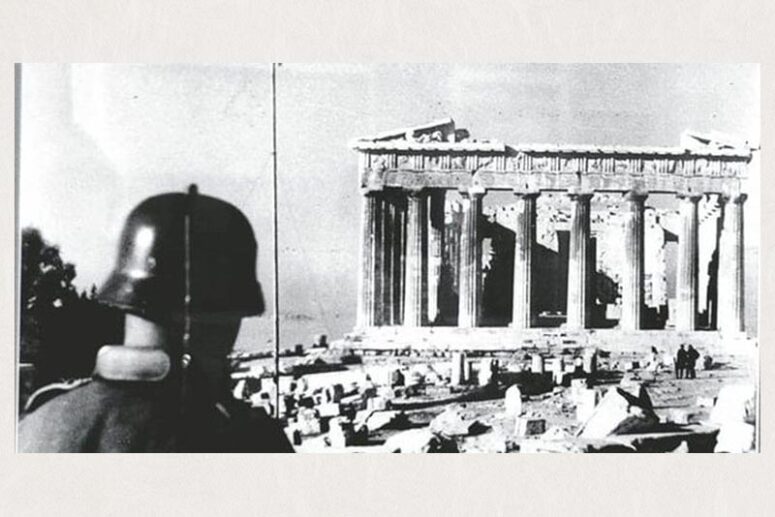
By that time, Greece was divided between Germany, Italy and Bulgaria. The swastika flag was fluttering over the Acropolis, and King George II of Greece with the government fled to Egypt. Damaskinos could afford neither caving in to the Nazis nor rejecting the offer. Greece was dying. The suffering nation needed help, and there was no other hope but the Church.
On July 2, 1941, the Synod recognized Damaskinos as the legally elected Archbishop of Athens. Three days later, a decree was issued by the occupation government, which recognized the legitimacy of the new hierarch.
Provide, Protect and Preserve
The Archbishop was faced with many tasks that seemed impossible to accomplish. Hunger was the first of them. The Nazis scavenged the country looking for food for their army. In the winter of 1941-1942 about 350,000 people died of starvation in Greece.
On top of that, the invaders shut down maternity homes and hospitals in Greece. The church took it upon itself to save children from the “new order”, creating its own network of midwives and nurses. The hungry were fed in free canteens. The sick were provided with assistance – medical, financial, and spiritual.
Constantly denouncing the invaders and their servants in his sermons, the Primate called for unity and patience: “Today each of us carries the cross of trial. Each of us goes step by step to his own Calvary through bitterness and sorrow. We all suffer much, but we have no right to deny our centuries-old national and Christian tradition, and faint in the middle of the road.”
The Church helped members of the Resistance movement sentenced to imprisonment or capital punishment. The Archbishop visited prisons and administered communion to prisoners. He sought the release of those held in custody and tried to alleviate their suffering.
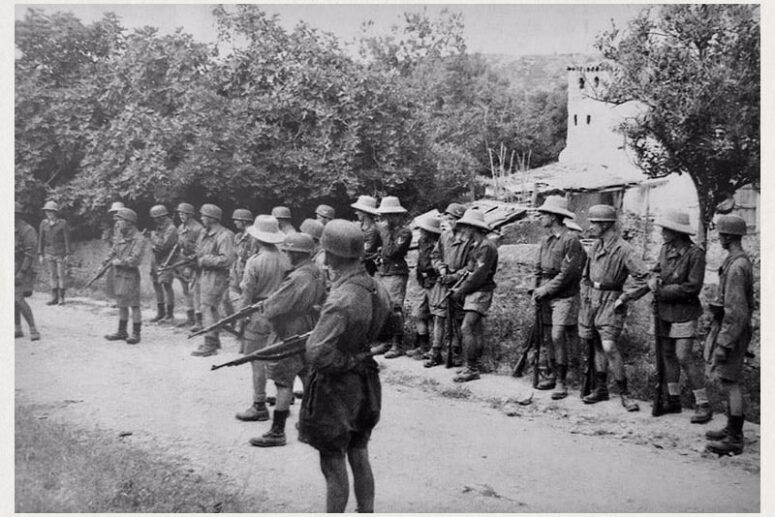
The Germans were about to begin forced mobilisation in occupied Greece. Archbishop Damaskinos managed to achieve its cancellation. The Nazi administration regularly demanded from him names of the Resistance members. The Archbishop took a sheet of paper and wrote his own name on it. However, the participants of the Resistance were still being arrested and shot, and their bodies were not returned to their families. Archbishop Damaskinos spoke out in their defence:
“You are depriving people even of this last consolation that our religion offers them: the opportunity to say farewell to their relatives. I demand that you give me the names of those executed and put an end to the suffering of many thousands (…) of Greeks (…). Let these people show their grief and put the names of their loved ones on a cross erected in their memory!”
His opponents did not listen to him, and then the Archbishop warned them, “I will dig up the dead to identify the executed, and if you think you can stop me, you are mistaken.”
Eventually he managed to obtain the names and bodies of the executed.
“Neither Greek nor Jew…”
In early 1944, the Nazis embarked on their “Final Solution” plan. Before the War, the Jewish community in Greece consisted of almost 80 thousand people, 50 thousand of whom lived in Thessaloniki. Thirteen thousand Jews fought against the invaders in the anti-fascist Greek army, and up to two thousand joined partisan units in 1941.
Jews in Greece are generally patriotic and many even consider themselves Greeks. However, the proponents of “racial purity” did not care about this. The military commandant of occupied Athens was SS General Jürgen Stroop, a German SS commander responsible for the liquidation of the Warsaw Ghetto in 1943. The chief rabbi of Greece was instructed to urgently submit to the commandant a list of Jews with names and addresses. There could be no doubt about the possible consequences, since mass deportations to the Auschwitz and Birkenau death camps had already taken place in Thessaloniki and other Greek cities. Rabbi Elias Barzilai appealed to the Greek civil authorities, but received no support. He then turned to Archbishop Damaskinos and the chief of the Athenian police Angelos Evert. The Archbishop immediately wrote a letter to the Greek Prime Minister:
“Our holy faith recognizes no distinction, superiority or lack of dignity based on national or religious grounds, holding to the doctrine that before God ‘there is neither Greek nor Jew,’ and thus condemning any attempt to discriminate against people on religious or national differences <… > If nevertheless they (the Germans) demand deportation, we believe that the government, as the bearer of the remaining power in the country, must be absolutely uncompromising in its negative attitude toward this and let the foreign party bear full responsibility for this blatant injustice. Let no one forget that all deeds committed during this difficult time, even those lying outside our will and power, will one day be judged by all nations and subjected to historical investigations. If the leaders are afraid to protest boldly in the name of the nation against the brutal deportation of Greek Jews, offending our national unity and honour, their silence will weigh heavily on the conscience of our people.”
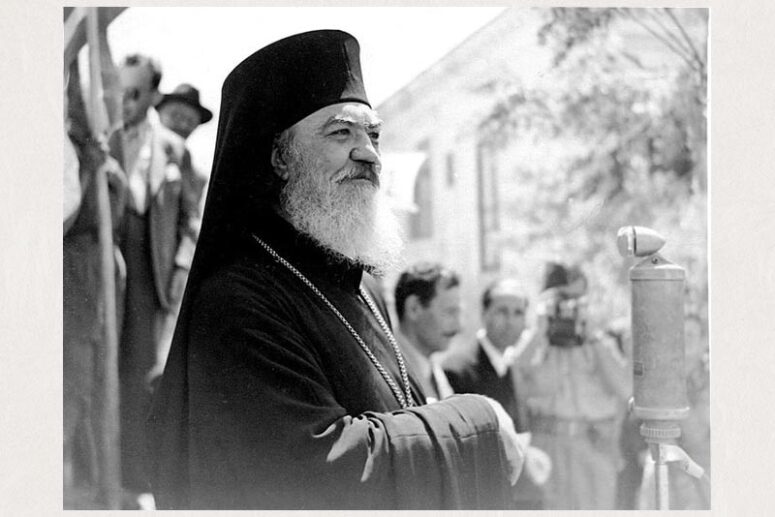
The authority of the archbishop was so high that the most respected and educated people of the country — scientists and writers, lawyers and businessmen, professors and university rectors — followed him in signing this letter. According to the International Raoul Wallenberg Foundation (a non-governmental organization which researches Holocaust rescuers and advocates for their recognition) this appeal is unique. No other European country has a similar document from World War II.
Bishop Damaskinos understood that words alone were not enough to save people. He secretly helped those in need, especially Jews and Gypsies, to obtain fictitious baptismal certificates with new Christian names. On the basis of these certificates, the police chief Angelos Evert issued identity papers for these people. Both the Archbishop and the Police official were well aware of the mortal danger they were putting themselves in, yet they managed to save some 1,400 lives. Besides, with the blessing of the Archbishop, Orthodox monasteries hid Jews without baptismal certificates. Rabbi Barzilai was able to escape using the archbishop’s car, which was not subjected to constant inspections, and join the partisan movement.
Prime Minister in Monk’s Habit
In May 1944, as the Third Reich was already on the verge of collapse, a high-ranking German officer came to Archbishop Damaskinos to convey Hitler’s order for the Greek hierarch to be transferred to Germany “for security reasons”.
The Archbishop replied, “Thank you for your concern, but I will never leave my homeland. (…) If you insist on relocating me, you would have to kill me first.”
In 1944 Winston Churchill, who came to Athens after the liberation of Greece, offered the Archbishop as interim head of government, and on December 31 he was appointed regent of Greece. Although he was unable to form a coalition government with representatives of all political movements, the Archbishop served as prime minister for a year, from the fall of 1945 until the return of King George II in the fall of 1946.
In 1947, Damaskinos became one of the founders of the Queen’s Fund (Vasiliki Pronia), a Charitable Foundation helping children left homeless during the civil war that began in Greece after the German withdrawal.
The Archbishop Damaskinos remained Primate of the Hellenic Church until his death on May 20, 1949.
Translated by The Catalogue of Good Deeds
Source: https://foma.ru/esli-hotite-menja-povesit-vot-verevka-kak-pravoslavnyj-arhierej-ne-pobojalsja-fashistov-i-spas-tysjachi-ljudej.html


